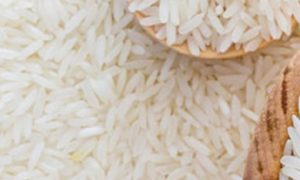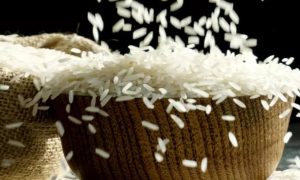Centre weighs resuming rice supplies to ethanol makers

NEW DELHI : The government is considering resuming rice supplies for ethanol production, worried that it might miss production targets amid a shut-down by ethanol distilleries, two government officials aware of the matter said.
The move comes in spite of criticism, sparked by the Karnataka assembly elections, over a mismatch in rice prices—it’s cheaper for making ethanol than for human consumption.
After the May elections, the Centre stopped supplying subsidized rice to state governments, putting these stocks for open market sales instead. But these found no takers after prices zoomed, prompting the Centre to order the Food Corporation of India to halt rice supplies for ethanol production last month.
This disruption in rice supply to distilleries for ethanol production has reportedly led to a temporary shutdown of a few units.
Ethanol is made from sugarcane but also from grains, mostly rice. While sugarcane juice and an intermediate product called ‘B-molasses’ account for about 80% of the ethanol produced in India, rice has a share of nearly 18%.
One of the officials cited above said, “As the government stopped supplying rice to Karnataka due to political reasons, criticism was being received. If rice was not being given for human consumption, why give it for fuel? This was the reason why FCI halted rice supply for ethanol production.”
“The government is thinking to resume rice supply. It is expected to take a final call in a fortnight or so because the fuel policy is of great interest to the government.”
The Centre has a target of 20% blending of ethanol in India’s fuel mix by 2025. Two factors are driving the push for rice—the temporary shut-down by distilleries and the fact that India cannot produce ethanol from sugarcane alone because there isn’t enough of the crop around.
The Centre in March 2020 decided to supply FCI-held rice to distilleries for producing ethanol at ₹2,250 per quintal under the open market system. It lowered this to ₹2,000 per quintal in December 2020, and has continued supplying at the same price.
FCI, on the other hand, is offering rice to the open market for human consumption at ₹3,100 per quintal. This is because the price of rice supplied for ethanol is lower than the cost incurred by FCI in procuring and storing. The artificially low price is aimed at encouraging sugar mills and distilleries to enhance their distillation capacities and help the government achieve its 2025 target.
The FCI has supplied over 2.4 million tonnes of rice to ethanol makers since December 2020, including 1.3 mt up to 10 July in the 2022-23 ‘ethanol year’, minister of state for consumer affairs, food and public distribution Sadhvi Niranjan Jyoti told the Lok Sabha on 26 July.
FCI, the government’s grain procuring agency, aims to sell 3.4 mt rice to ethanol makers in the ongoing ethanol year ending October. But if distilleries, especially grain-based ones do not operate in August-October due to FCI rice supply disruption, there could be a fall in blending.
Queries sent to the food and public distribution ministry and FCI remained unanswered till press time.
Meawhile, the Indian Sugar Mills’ Association (ISMA) on 1 August requested the government to increase the price of ethanol extracted from sugarcane to ₹69.85 per litre from the current ₹65.60, arguing better returns are needed to boost supply and meet this year’s blending target of 12%.
ISMA says 12 billion litres of ethanol will be needed to hit 20% blending in petrol by 2025, of which around 4 billion litres was contracted this ethanol year. Oil marketing companies had achieved 11.77% blending by 23 June, since the beginning of the ethanol season in December.














